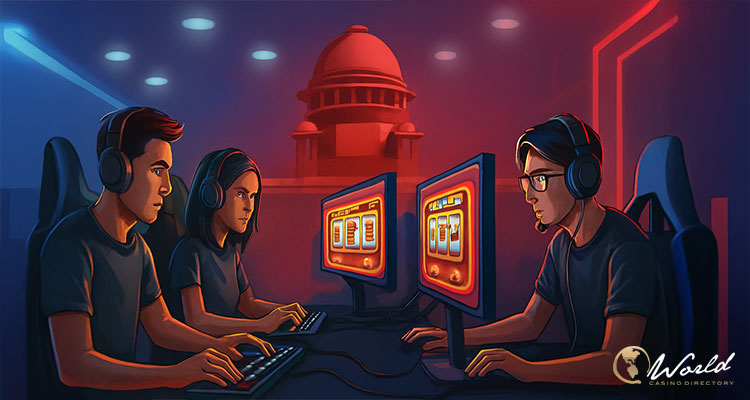The Supreme Court of India has agreed to hear a public interest litigation (PIL) seeking a nationwide ban on online gambling and betting platforms that allegedly pose as social or esports games. The petition, filed by the Centre for Accountability and Systemic Change (CASC) and activist Shourya Tiwari, urges the government to address what the petitioners describe as a growing “national crisis” impacting nearly half of the country’s population.
A bench led by Chief Justice B.R. Gavai and Justice K. Vinod Chandran took note of the submissions presented by advocate Virag Gupta, representing CASC, and scheduled the matter for hearing on October 17, 2025. The petition seeks directives to several Union ministries—including Electronics and Information Technology, Information and Broadcasting, Finance, and Youth Affairs and Sports—to interpret the Promotion and Regulation of Online Gaming Act, 2025 in a manner consistent with state laws that prohibit gambling.
Petition Seeks Action Against Gambling Apps Masquerading as Games
Filed on October 13 through advocates Virag Gupta and Rupali Panwar, the PIL names six respondents: four Union ministries along with Apple Inc. and Google India Pvt. Ltd., the two major app store operators that host many of these platforms. The plea calls for a unified approach to restrict online gambling and betting operations disguised as legitimate gaming services, according to The Hindu.
The petition argues that the unchecked proliferation of such apps has led to widespread financial and social harm. It points out that “betting and gambling are regarded as unlawful activities in the majority of the States in India,” adding that more than 65 crore individuals participate in these online games, generating an estimated annual business exceeding ₹1.8 lakh crore.
CASC, represented by former Uttar Pradesh Director General of Police Vikram Singh, has asserted that the exponential rise of online gaming platforms has resulted in a range of adverse effects—from addiction and mental distress to financial instability and even suicides. The plea emphasizes the urgent need for government intervention.
Call for Stronger Enforcement and Regulatory Oversight
In its submission, the petition seeks several specific directions from the apex court. Among these are orders to block illegal betting and gambling sites under Section 69A of the Information Technology Act and to prevent financial transactions involving unregistered gaming applications through banking and payment systems such as the RBI, NPCI, and UPI platforms.
The PIL also calls for investigations by agencies including the CBI, ED, and Interpol into offshore operators believed to owe over ₹2 lakh crore in unpaid taxes. In addition, it urges authorities to ensure the protection of minors’ data collected by online gaming companies.
During a prior hearing, another Supreme Court bench comprising Justices J.B. Pardiwala and K.V. Viswanathan described the matter as “an important issue” and asked the petitioners to serve copies of the plea to the government’s counsel. Advocate Virag Gupta informed the court that the petition sought to safeguard nearly 15 crore children affected by the absence of clear regulatory measures.
He highlighted that under the Constitution’s Seventh Schedule, gambling and betting fall within the State List, but noted that the Central Government functions as the “gatekeeper” with the authority to issue blocking orders. Gupta pointed out that, according to official records, around 1,528 gaming apps have already been blocked.
Government Urged to Address Legal Gaps in Regulation
The PIL references the recently enacted Promotion and Regulation of Online Gaming Act, 2025, a law passed by Parliament earlier this year to curb the growing influence of real-money online gaming. According to the Information Technology Minister’s remarks in Parliament, the law aims to “ensure the welfare of society and to prevent the serious evil that is creeping into society.”
The petitioners maintain that despite this legislative step, enforcement remains inconsistent, allowing illegal gambling platforms to flourish under the pretext of esports and social gaming. They further allege that the involvement of celebrities and sports figures in promoting these games has fueled addiction and facilitated cyber fraud and money laundering.
CASC has urged the court to compel the government to harmonize central and state-level laws and to establish a cohesive framework to tackle the rapid spread of unregulated online gaming. The Supreme Court is expected to revisit the matter and it may issue further directions to relevant authorities.



